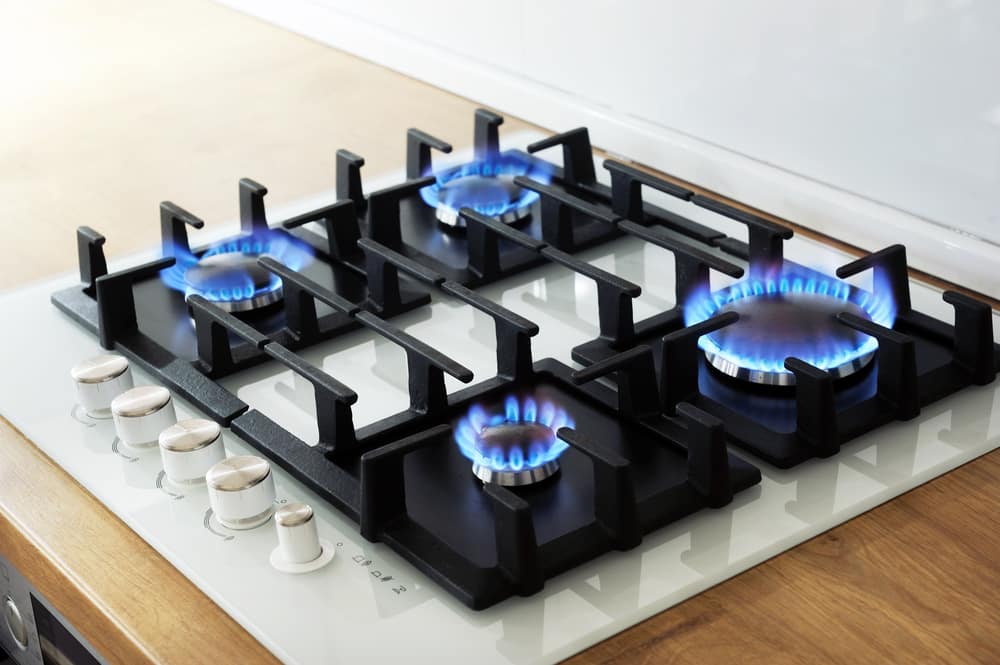
Gas stoves are the most common way of cooking food in the majority of households. This is because the gas stoves are easier to use, and they can be easily found in house appliance stores. Even more, the gas stoves are extremely affordable, which makes them suitable for everyone. However, there are many people asking, “why does my gas stove make a popping sound?” In case your gas stove is making these popping sounds, you have to check out the following potential solutions!
Why Does My Gas Stove Make A Popping Sound?
1. Burner Cap
The first reason behind the popping sound of a gas stove is the burner cap going askew. In simpler words, the burner cap is not in its right position, which results in weird sounds. For this reason, you need to switch off your gas stove and let the burners cool down. Once the burners are cooled down, touch the burner and see if it is fixed. On the other hand, if it wiggles, you have to take it off and install it again to ensure it’s in place. In addition, you can check the gas stove’s manual to see how you can seat the burner cap in its place.
2. Wet Burners
It is needless to say that gas stoves have to be cleaned regularly because it’s essential for hygienic purposes. However, if you recently cleaned your gas stove and there is some moisture left, it could result in a popping sound. In that case, you’ve to cool down the burners and make sure the burners are properly dried up. In addition to this, if you have recently boiled something on the stove and it boiled over the burner, it could be another reason behind the popping sound. For this reason, all you’ve to do is lift off the burner and dry it up as well as the caps.
3. Dirty Burners
With regular cleaning, it is pretty obvious that the burners will be clogged with food particles and dirt. Little do we know, this food buildup and dirt can clog the burners’ orifices and result in popping sound. The only solution for this is cleaning the burners. You can use a thin stick or a needle to clear out the orifices, and don’t forget to clean the burner ring. Also, it is best that you make it a habit to clean the burner orifices regularly to prevent the issue in the future.
4. Damaged Igniter
An igniter is one of the most critical parts of any gas stove because this is what switches on the fire on a stove. However, when the igniter gets damaged, it makes different sounds, and a popping sound is one of them. In addition to the damaged igniter, the damaged igniter wire could also be the reason behind it. So, first of all, you’ve to ensure that the igniter is fully cleaned and there is no debris. Once cleaned, you should call in a technician to fix the igniter as well as the related wires to make sure everything is working on point.
5. Ineffective Air Mix
When it comes down to switching on the gas stove and cooking food on it, it obviously needs a specific air mixture for supplying combustible air to the stove burners. Similarly, when the air mix is ineffective, the stove won’t switch on, and there will be an issue with the sound. To resolve this issue, you should open the air shutter to provide more combustion air and see how it impacts the sound. Keep in mind that the flame must be blue, but if it’s weak, the air supply is limited. To streamline the air mix, you need to use the set screws because they have to be loosened for permitting the air mixture.
6. Expanded Metal Parts
The gas stoves are integrated with multiple metal parts, and since these gas stoves produce heat, these metal parts get thermally expanded. To be honest, it’s pretty normal for the metal parts to get expanded. So, when these metal parts are heated and expanded, it results in a popping sound. In such cases, you must switch off your gas stove to let it achieve room temperature.
To summarize, these are some common troubleshooting methods that you can try for optimizing the stove’s functionality without any popping sounds. However, be careful and don’t forget to cool it down before you make the repairs.